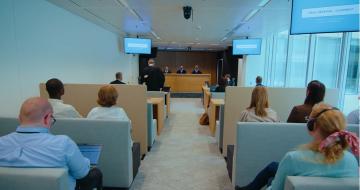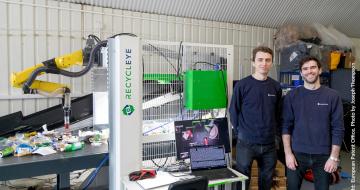Table of Contents
Copyright confers on the author the exclusive privilege to decide
- on the way and
- conditions in which
his work will be accessible to the public.
He may
- decide to distribute his work for a price,
- and he can allow its use only under specific conditions (e.g. he can allow private use of the work, prohibit reproductions, prohibit modification of the work, etc.).
On the other hand, some authors want their work to be used as widely as possible by the public. They wish to freely authorise access and use.
The decision to make his work available under a free license or to commercially exploit it, is up to the author, unless his copyrights were
- transferred to his employer,
- to a third party, or were
- entrusted to a collective management organisation, or
- if other persons have rights on elements of his creation (performers, co-authors, author of a work incorporated into another work, etc.).
Is it public domain?
It is not necessary to place the work into the public domain by giving up your rights. By placing his work in the public domain, the author has no possibility of setting limits on what the public is allowed to do with his work. However, an author sometimes wants his work to be freely accessible but would like to be able to object, for example, to someone modifying it or using it for commercial purposes (while he made it freely accessible himself).
There are licencing models that allow this: free licences or open source licences.
These are licences that give the public a lot of freedom to use the work but also allow the author to set conditions.
Free licences
There are several types of free licences, the most well-known of which is obviously the GNU-GPL (General Public License) which relates to software.
The EUPL is a European model of free licencing, unlike the GPL, which is a model based on North American law.
Creative Commons
There are free licences which are more appropriate for creations that are not software, such as
- articles,
- stories,
- photos,
- websites,
- music,
- videos,
- textbooks,
- etc.
One example of a widely used licence is the Creative Commons licence that allows
- copying,
- distribution or
- communication
of the work, either in all contexts or only in a non-commercial context. Modification of the work is also sometimes allowed.
What can be done with a "free" work, under "Creative Commons", in "free access"?
The so-called
- "free" works,
- under "Creative commons"
- “in free access”
are different from traditional works because the author decided to give broad rights of use to everyone :
- the right to access the work,
- to use it,
- to make copies,
- to distribute these copies, etc.
However, keep in mind that there are also often conditions that accompany these rights, such as
- the obligation to mention the names of authors on distributed copies,
- the prohibition to modify the work,
- the prohibition to sell copies, etc.
The scope of permissions and conditions depends on what the author decided. It is, therefore, necessary in each case to consult the document or Internet page on which these rights and conditions are listed.
Why choose a free licence as an author?
The free licence does not mean that you waive your copyright, but only that you authorise a fairly broad use of your work, a freedom that is governed by a specific contract.
The choice to distribute one’s work under a free licence only belongs to the copyright owner and depends on
- the creator's personal convictions,
- the type of creation and
- the methods of remuneration that the author can expect.
However, caution must be exercised. Music broadcast on the Internet under a free licence allows everyone to copy the work and in turn to broadcast it free of charge, under the conditions defined in the free licence.
In principle, no remuneration of the author may be required for copyright law for the use of the work under the conditions of the free licence. The author must be well aware of this when choosing a free licence.


